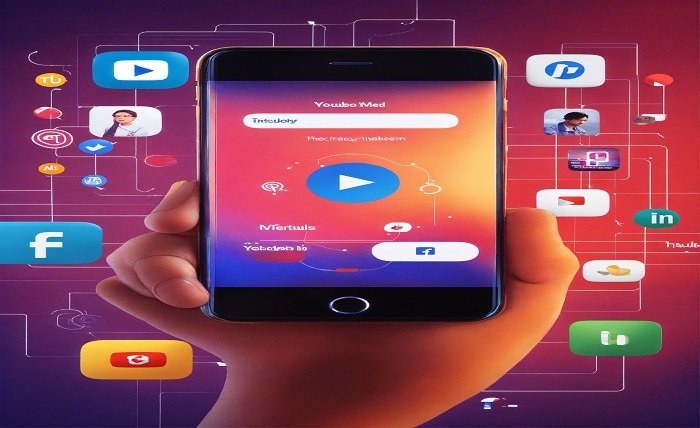Exploring “wPolityce Facebook”: Insights into Political Engagement on Social Media

Introduction
The intersection of politics and social media has become a pivotal force in modern communication. “wPolityce Facebook” symbolizes this dynamic, serving as a conduit for political discourse, opinion sharing, and engagement with contemporary issues. This platform highlights how Facebook has evolved beyond a social network to a crucial medium for political interaction. With “wPolityce Facebook,” users encounter a blend of news, debates, and perspectives that shape their understanding of current events. From amplifying political voices to creating spaces for dissent, the influence of this medium cannot be overstated.
The Role of “wPolityce Facebook” in Shaping Public Opinion
“wPolityce Facebook” plays a significant role in shaping public opinion by disseminating political content to a broad audience. Algorithms on platforms like Facebook amplify trending topics, allowing political narratives to gain momentum quickly. Whether it is breaking news or in-depth analysis, “wPolityce Facebook” ensures that political developments reach citizens in real-time. This constant stream of information encourages users to engage, comment, and share their perspectives, making it a hub for interactive political discourse. However, the influence of this medium also raises questions about bias, misinformation, and echo chambers.
How “wPolityce Facebook” Enhances Political Engagement
One of the key benefits of “wPolityce Facebook” is its ability to enhance political engagement. Through features like live streams, comment sections, and polls, users can actively participate in political conversations. Politicians, activists, and organizations leverage this platform to connect directly with their audience, bypassing traditional media outlets. “wPolityce Facebook” enables grassroots movements to gain visibility and fosters a sense of community among like-minded individuals. However, this increased engagement also necessitates responsible usage to ensure productive and respectful dialogues.
Challenges Faced by “wPolityce Facebook”
Despite its benefits, “wPolityce Facebook” is not without challenges. The spread of misinformation is a significant concern, as unverified content can quickly go viral. The platform’s algorithms, designed to maximize engagement, often prioritize sensational or polarizing content, exacerbating societal divisions. Additionally, the anonymity offered by online platforms can lead to toxic behavior, including trolling and harassment. To address these issues, “wPolityce Facebook” must balance freedom of expression with measures to curb harmful practices. This involves leveraging fact-checking initiatives, moderation policies, and user education.
The Impact of “wPolityce Facebook” on Political Campaigns
Political campaigns have undergone a transformation with the advent of “wPolityce Facebook.” Candidates and parties now rely on targeted advertising, data analytics, and user insights to craft tailored messages. “wPolityce Facebook” allows campaigns to reach specific demographics with precision, maximizing their outreach efforts. From mobilizing supporters to fundraising, the platform has become an indispensable tool in modern elections. However, concerns about privacy and data security highlight the need for transparency and ethical practices in political advertising.
“wPolityce Facebook” and Citizen Journalism
Citizen journalism thrives on platforms like “wPolityce Facebook,” where ordinary individuals report on events and share firsthand accounts. This democratization of information empowers users to become active participants in the news cycle. “wPolityce Facebook” serves as a space where diverse voices can be heard, challenging mainstream media narratives. However, the credibility of citizen journalism depends on verification processes and accountability. Encouraging responsible reporting and critical consumption of information is essential to maximize the potential of this medium.
The Future of “wPolityce Facebook”
The future of “wPolityce Facebook” lies in its ability to adapt to evolving trends and challenges. As technology advances, the integration of artificial intelligence, virtual reality, and other innovations may redefine the user experience. The platform’s role in fostering political engagement and dialogue will continue to grow, but so will the need for ethical governance. Striking a balance between openness and regulation will be crucial in ensuring that “wPolityce Facebook” remains a force for positive change.
Conclusion
“wPolityce Facebook” exemplifies the transformative power of social media in the political realm. By facilitating engagement, shaping public opinion, and empowering citizen journalism, it has redefined how individuals interact with politics. While challenges like misinformation and polarization persist, the platform’s potential to drive meaningful dialogue and change is undeniable. As we navigate the complexities of this digital era, “wPolityce Facebook” serves as a reminder of the importance of responsible and informed participation in the political process.
FAQs
1. What is “wPolityce Facebook”?
“wPolityce Facebook” refers to the use of Facebook as a platform for political discourse, engagement, and information sharing.
2. How does “wPolityce Facebook” influence public opinion?
It influences public opinion by amplifying political content, enabling discussions, and shaping narratives through algorithm-driven visibility.
3. What are the challenges associated with “wPolityce Facebook”?
Challenges include misinformation, polarization, toxic behavior, and ethical concerns related to data privacy and targeted advertising.
4. How can “wPolityce Facebook” enhance political engagement?
By providing tools like live streams, polls, and direct communication, it enables active participation and community building.
5. What is the future of “wPolityce Facebook”?
The future involves integrating advanced technologies and implementing ethical regulations to balance openness with accountability.




